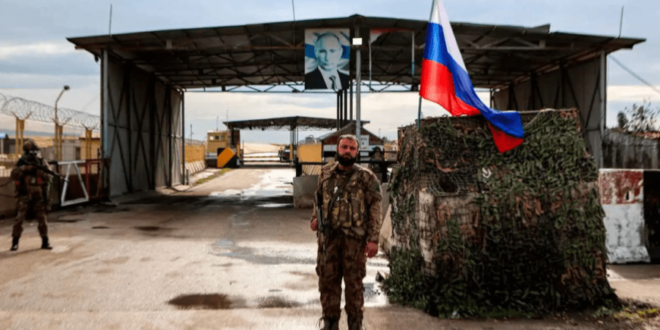Several days have passed since a ground assault targeted Russia’s Hemeimeem airbase on Syria’s Mediterranean coast, yet neither Moscow nor Damascus has issued any official statement clarifying the incident. Behind the silence, however, it is widely believed that high-level, behind-the-scenes communications have taken place to address not only the attack itself but also broader issues related to Russia’s military presence in Syria and the evolving bilateral relationship.
According to unverified reports circulated on social media, the May 20 attack was carried out by four to five armed men—allegedly of Uzbek origin—who opposed Syrian President Ahmad Al-Sharaa. The clash reportedly resulted in the deaths of three to four attackers and two Russian soldiers, while a fifth assailant fled the scene. Russian forces allegedly launched an anti-tank shell in pursuit, but his fate remains unclear.
A Message to Russia?
Some analysts were quick to interpret the attack as a reaction to recent diplomatic breakthroughs between Damascus and Western powers. The European Union, in particular, had previously suggested that full normalization with Syria would require the withdrawal of Russian forces. These analysts argue the strike on Hemeimeem might be a “message” urging Moscow to begin pulling out. However, this line of reasoning remains speculative—no clear perpetrator has been identified, and it’s uncertain who would have the interest and capacity to deliver such a message through violence.
Others disagree, noting that U.S. President Donald Trump made no reference to Russian bases in Syria before, during, or after his landmark decision to lift sanctions on the Syrian government. For Washington, Russia’s military footprint in Syria—especially on the Mediterranean coast—does not currently seem to be a matter of concern. Even within Europe, although foreign policy chief Kaja Kallas did explicitly demand a full Russian withdrawal as a condition for engagement, the EU’s recent decision to lift sanctions proceeded without further mention of that stipulation. For now, it seems Brussels is prioritizing economic interests and human rights reforms over military presence.
Syria’s Position: Negotiation, Not Escalation
President Ahmad Al-Sharaa’s stance on the issue has been consistent. During his time as commander of the liberation campaign, he stated that Damascus had sent indirect warnings to Moscow suggesting that Russian bases could become targets—but emphasized a preference for dialogue and rebuilding relations on the basis of sovereignty, security, and Syrian independence. The message was clear: Damascus prefers negotiation to escalation.
Given that, observers argue, Syria’s leadership would have no need to resort to covert or violent methods to express dissatisfaction with Moscow. Direct diplomatic channels exist—and have been used. In fact, it is likely that the two sides are already communicating discreetly about the Hemeimeem incident through diplomatic or military channels. Both governments have demonstrated a preference for resolving sensitive issues away from media scrutiny.
This would not be unprecedented. For instance, Syrian Foreign Minister Asaad al-Shibani held a previously undisclosed meeting with Russian Foreign Minister Sergey Lavrov in Ankara in late February, only revealed when Lavrov mentioned it weeks later.
A Message to Sharaa?
Some Russian analysts suggest the attack may have been aimed not at Moscow, but at Syria’s new president. Kirill Semenov, a political analyst at the Russian International Affairs Council, told Syria TV that the assault could be linked to a recent fatwa by Salafi-jihadist ideologue Abu Muhammad al-Maqdisi, declaring President Sharaa an apostate.
Semenov pointed to growing discontent among former loyalists and factions previously integrated into the Syrian army, many of whom believe Sharaa has betrayed his past by abandoning jihadist principles and engaging in normalization with foreign powers. These elements, he argued, may have chosen to lash out—not by confronting Sharaa directly, but by attacking a Russian base to symbolically reject his policies, particularly his new diplomatic overtures to Russia and other nations.
Though the true motives and perpetrators remain unclear, the Hemeimeem attack has reopened sensitive questions about the Russian presence in Syria, the trajectory of Damascus-Moscow relations, and the internal fractures within the Syrian landscape. Whether the strike was meant to pressure Russia, challenge Sharaa, or both, it underscores the complex intersections of ideology, geopolitics, and power in post-Assad Syria.
 Eurasia Press & News
Eurasia Press & News




